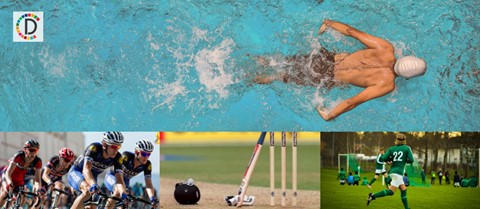Australian sports set guidelines on trans athletes
Netball Australia and the Australian Football League (AFL), the Aussie Rules governing body, also issued fresh guidelines for the elite level at a launch at the Sydney Cricket Ground. The participation of trans athletes in sport has proved divisive, with federations grappling to find a balance between fairness and inclusion.

- Country:
- Australia
Eight Australian sports federations, including peak bodies for tennis, rugby union and Australian Rules football, issued guidelines for the participation of transgender athletes in competition on Thursday. The initiative spearheaded by ACON, a health NGO advocating LGBT rights, was driven by a need for national guidance on how sports could be inclusive of "trans and gender-diverse" people, organisers said in a media release.
"While many trans people across Australia are members of very inclusive sports clubs, many also report that joining a club is an intimidating and frightening experience," Teddy Cook, ACON's manager of Trans and Gender Diverse Equity said. "The commitment from these sports provides much needed guidance to the many clubs working hard to be the open and inclusive sport they want to be for all athletes, including those athletes who are trans."
Tennis Australia, Rugby Australia and national federations for Australian Rules football, hockey, netball, water polo, Touch Football and university sports issued guidelines governing inclusion at grass-roots and community level. Netball Australia and the Australian Football League (AFL), the Aussie Rules governing body, also issued fresh guidelines for the elite level at a launch at the Sydney Cricket Ground.
The participation of trans athletes in sport has proved divisive, with federations grappling to find a balance between fairness and inclusion. Women's sports advocates argue that the naturally acquired physical benefits a transgender woman receives by going through male puberty last long into adulthood and provide an unfair advantage in competition.
Transgender advocates, however, say inclusiveness should be the over-riding factor and that preventing trans athletes from participating in women's sport only increases the stigma and discrimination they face. "We know that trans athletes can be targeted on the unfounded basis that we affirm our gender to seek a competitive advantage in sport, but this is untrue and incredibly damaging to all," said Cook.
A number of other Australian federations, including for soccer, golf, swimming and athletics, committed to emulating the other sports in producing their own inclusion frameworks, organisers said. Australian sports have been criticised in the past by transgender activists for not doing enough to include trans athletes.
The AFL came under fire over its handling of the case of trans athlete Hannah Mouncey, who represented Australia in men's handball before transitioning. Mouncey played women's football at provincial level but the AFL barred her from entering the 2017 draft for the professional women's competition and she withdrew her nomination for the draft the following year, complaining of poor treatment from the league.
(This story has not been edited by Devdiscourse staff and is auto-generated from a syndicated feed.)
ALSO READ
Nick Kyrgios: Struggling for a Comeback at the Australian Open
Australian Captain Praises Resilient Starc Ahead of Decisive BGT Match
Djokovic and Murray's Strategic Comeback Ahead of Australian Open
Beau Webster Steps Up: A New Era in Australian Cricket
Aryna Sabalenka Triumphs in Brisbane International as Australian Open Looms










